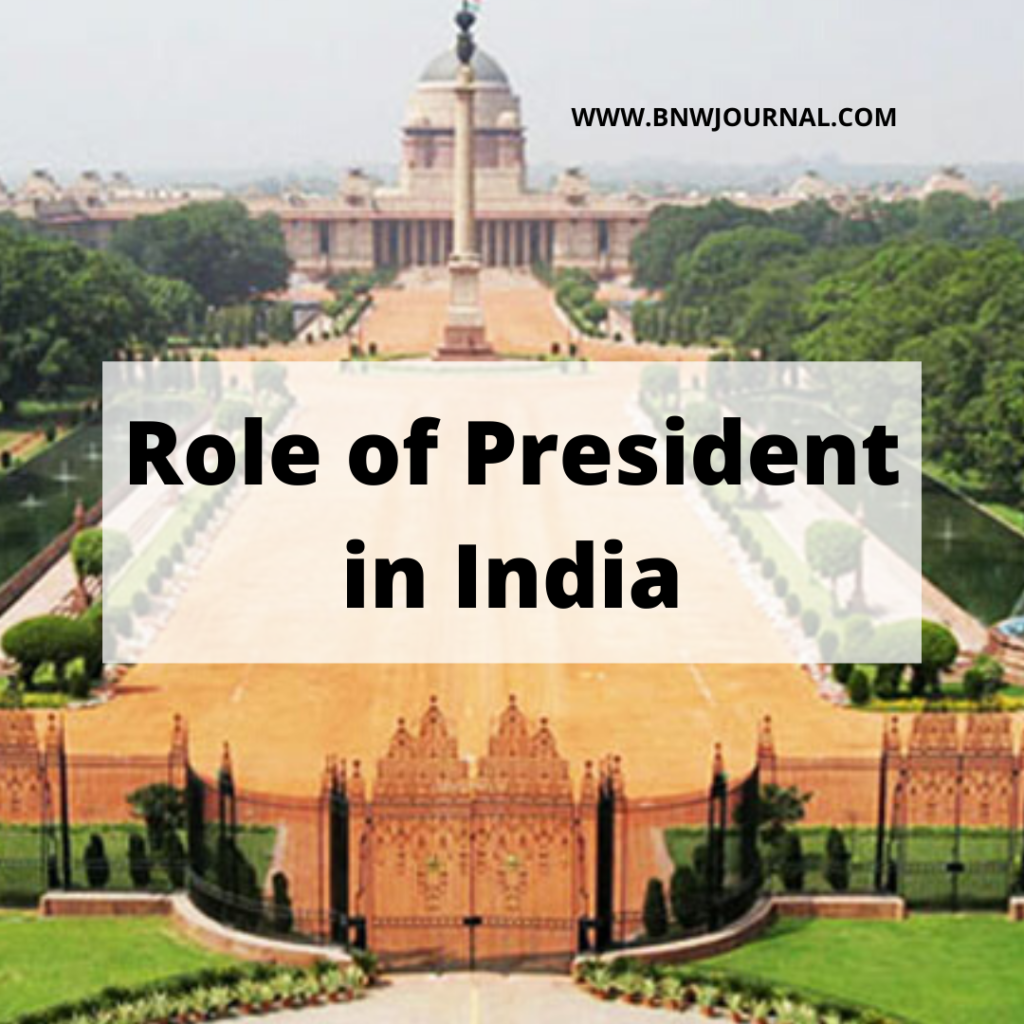![]()
INTRODUCTION
President of India is the ‘Head’ of the state of the Republic of India and also ‘Commander-in-chief’ of the Indian Armed Force. PART V of the Indian Constitution lists down the Qualification, Election, and Impeachment requirements of the President of India. The position of the President is the Most Powerful in India. And the President is required to maintain and preserve the ‘Integrity’ and ‘Importance’ of the Constitution.

ROLE OF PRESIDENT
The Role of the President is to act and perform with the Welfare of the country. The most vital role of the President of India is maintenance of diplomatic and cordial relationships with other countries. In short, the International Relations between the countries, for future benefits. President also negotiates in the matters related to treaties and agreements with other nations. President is wholly responsible for any ceremonial functions. India has a Parliamentary form of Government, and President is the Head of the State; whereas Prime Minister of India is the Appointed Head of the Government.
SELECTION PROCESS OF PRESIDENT
Article 54 and 55 deals with the ‘Selection Process of President’. He/ She is elected through an Electoral College. It comprises of Parliament Of India and also the Legislative Assemblies of each of the states and Union Territories. According to Article 61 , removal of President is also possible in case of violation of the Constitution, by the process of ‘IMPEACHMENT’.
DUTIES AND POWERS OF PRESIDENT
Article 52 to 61 of the Indian Constitution, states the Power, Duties, and Responsibilities of President of India.
1. Executive Power– All sort of executive actions are in the name of President, as in he has the Power of Appointment( Prime Minister and his Council of Ministers, Judges of Supreme Court and High Court, Members of the finance commission, election commission, etc); as well as the Power of Removal( of ministers, judges of Supreme Court and High Court on the advice of the Parliament, etc)
2. Legislative Power– President is an integral part of the Parliament. President inaugurates the Parliament, address it after the general elections, and also at the beginning of the first session every year. President assent only, can change the bill into the law. It also holds the power to dissolve the House of People before the expiry of its terms.
3. Judicial Powers- According to Article 60, President utmost duty is to protect and preserve the Constitution of India. President has the power of appointment and disposal of the Judges and also has the power of granting pardons or remissions of punishment to any person, who has been convicted by the Court of Law.
4. Emergency Power- President can declare National, State, and Financial Emergency as per the provisions of Article 352, 356, and 360.
5. Financial Power- President is the fiscal head of India. President appoints the Finance Commission of India and he/she places the annual budget before the Parliament. It is important to note that without the President assent or recommendation no Money bill can be introduced in the Lok Sabha.
Although, Article 53 of the Indian Constitution lay down the various powers of the President, according to which he/she is required to perform the existence of the President, but in reality, The President is required to consult the Prime Minister and its Council Of Ministers in any sort of matter or affair, whether International concern or national concern.
CONCLUSION
It can be concluded that the Real role and power of the President of India, is in terms of the Protection of the Constitution, as in regard to making any recommendations in any bill, before it gets duly signed, and turns into the Law of the country.



1 Comment
Ashish Singla · 03/05/2020 at 3:02 PM
Very good article well done Radhika